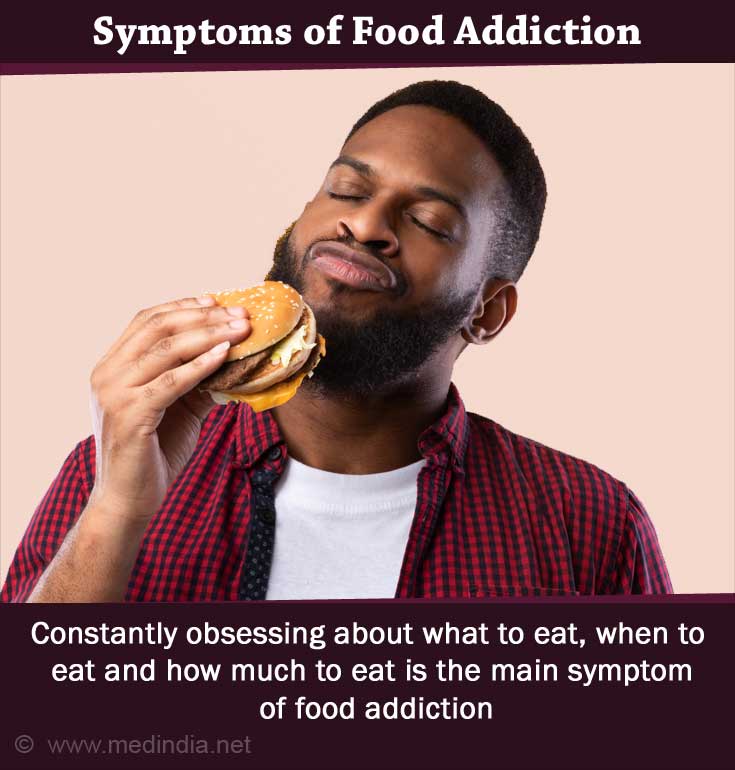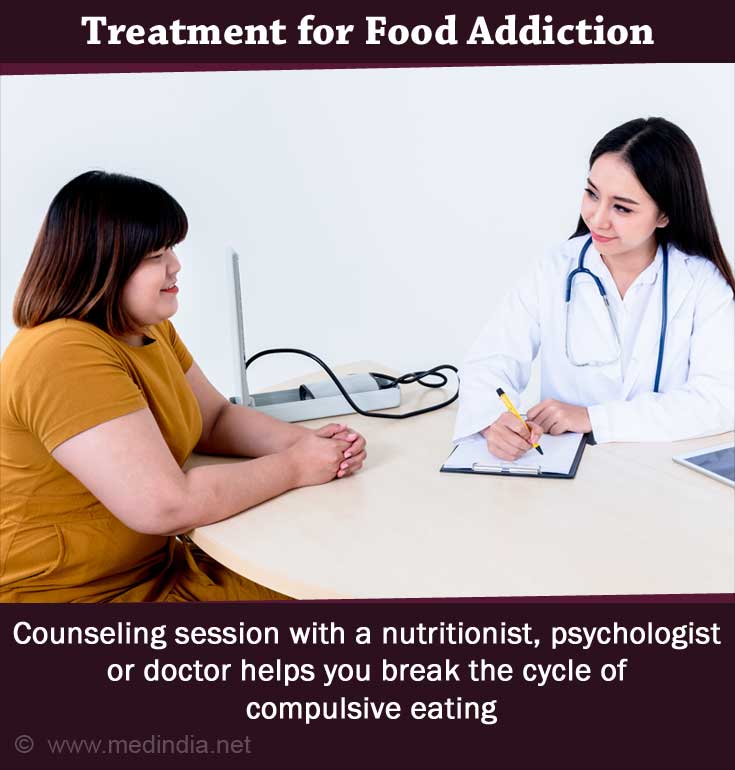What is Food Addiction?
Food addiction refers to the uncontrollable craving for junk food followed by ingestion of fried, fatty foods or foods made of sugar and refined flour that provide a feel good feeling. It often manifests itself as a compulsive need to eat even when you are not hungry.
In simple terms, food addiction is being addicted to junk food akin to the manner in which drug addicts are addicted to drugs. It affects the same areas in the brain, triggers the release of similar neurotransmitters and produces identical symptoms like in the case of a drug addict.
Consumption of high-fat and high-sugar foods brings about changes in behavior and physiology, similar to the changes caused by drug abuse. Food, like drugs and alcohol, triggers the release of dopamine in the brain. Dopamine is related to pleasure and thus creates a positive link between food and emotional wellbeing. In the addicted brain, food is seen as a drug used for re-creating pleasure.
Research published in Current Opinion in Gastroenterology in 2010 concluded that food addiction is a result of changes in a person’s neurochemistry and neuroanatomy.
Food addiction may also occur in people facing eating disorders such an anorexia or bulimia.
Symptoms of Food Addiction
The following are the symptoms of food addiction:
- Constantly obsessing about what to eat, when to eat and how much to eat

- Craving for certain foods, despite feeling full and having eaten a hearty meal
- Feeling guilty after giving into your craving yet craving for the same food yet again
- Finding yourself eating much more than you intended to eat i.e. overeating
- Making excuses about why you should be eating a particular food that you are craving
- Hiding your consumption of unhealthy foods from others by eating secretively
- Consistent unsuccessful attempts to control eating or eliminate bingeing episodes
- Associating food as a punishment or reward
- Inability to control consumption of unhealthy foods, despite knowing that they are detrimental to health
Although, food addiction may not appear as risky as drug or alcohol abuse, it is a serious problem that increases gradually over time. The uncontrollable cravings impact the physical, social and emotional well-being of the food addict.
Treating Food Addiction
Many people feel that treating food addiction may be more complicated than other kinds of addictions. Alcoholics and drug addicts can completely abstain from drinking alcohol or consuming drugs but people addicted to food still need to eat.
Counseling sessions with a nutritionist, psychologist, or doctor will be able to help you break the vicious cycle of compulsive eating.

There are also an increasing number of programs that help people who are dealing with food addiction issues. Some programs like ‘Food Addicts in Recovery Anonymous’ are based on the 12-step program, which has helped many people break free from alcohol, drugs, or gambling addiction.
The ‘Food Addicts Anonymous’ uses the principle of the 12-step program along with strict diets, which advise people to abstain from ingredients like sugar and refined flour.
Fortunately, we have the ability to reverse the damage and reclaim our healthy relationship with food.
Tips to Cure Food Addiction:
- Note down a list of the foods you tend to crave and/or binge on. These are the “trigger foods” that you need to completely avoid.
- Obtain a natural “high” from whole foods like watermelon, spinach, tofu, sesame seeds and avocado, which increase dopamine production naturally and re-establish normal reward responses.
- Power-packed protein and fiber combinations — carrot sticks and hummus, peanut or almond butter and apple slices are smart options to stop the urge to splurge on sugary, fatty and salty foods.
- Setting rules for the food choices you make is another way to keep food addiction at bay. For example, you can make rules like eating one cheat meal only on Sundays.







